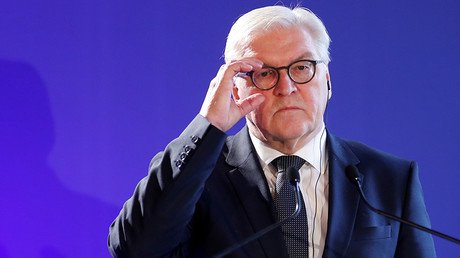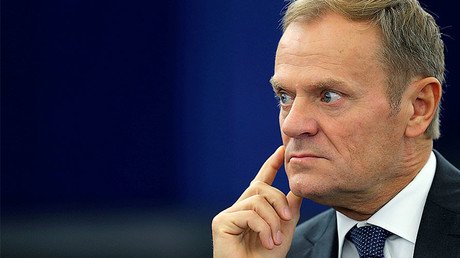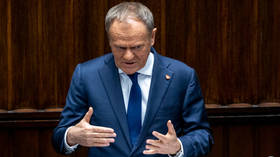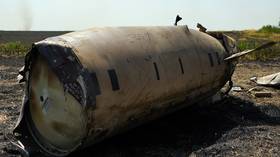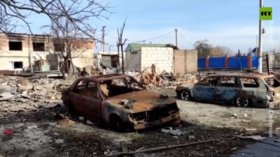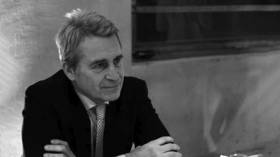‘Polarized & divided’ US may become destabilizing factor for world – EU foreign policy chief
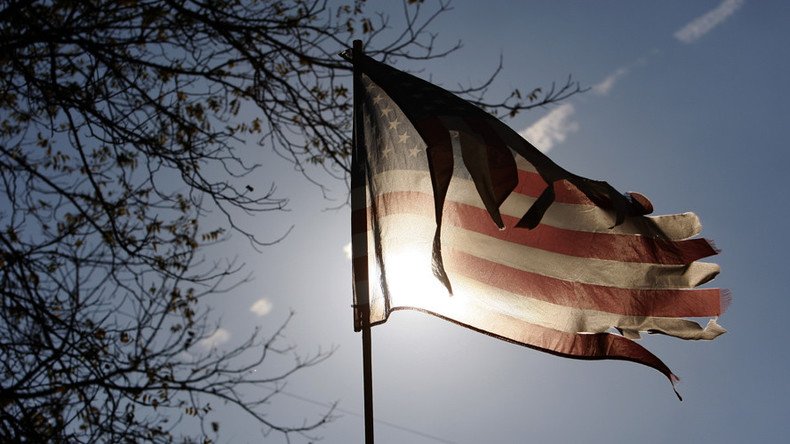
The US, polarized and divided as never before, could become a destabilizing factor for the rest of the globe unless it stays “domestically strong and united,” Federica Mogherini warned after her first meeting with the Trump administration in Washington.
“I have never seen the US so polarized, divided and burdened by conflicts as now. However, the one who would like to play a global leadership role needs to be internally strong, self-confident and cohesive,” the chief of EU diplomacy told Die Welt on Wednesday.
Mogherini maintained that the current developments in the US will surely have ramifications on international stability.
“If the greatest democracy in the world is beset with tensions of such scale, then it becomes a destabilizing factor for the rest of the globe,” she said.
Her interview to Die Welt and leading European newspapers came on the heels of her recent visit to Washington where she met with Secretary of State Rex Tillerson, then-National Security Advisor Michael Flynn, President Donald Trump's aide and son-in-law Jared Kushner, as well as some other top administration officials.
As some important elements of Trump’s foreign policy remain obscure – aside from hawkish agendas towards Iran and China – the European diplomacy should carefully tackle various themes to find out “where our positions coincide,” Mogherini said.
“Probably, there will more issues in which Europe’s [interests] will be different from those of the US administration,” she asserted, adding that the new reality is “no drama.” In coming years, Mogherini predicted, both sides will cooperate within “mature relationships” based on “respective autonomous positions.”
Speaking at the Atlantic Council during her two-day visit to Washington last week, Mogherini resorted to heightened rhetoric, saying that some in the Trump administration invited the Europeans “to dismantle what we have managed to build and which has brought us not only peace, but also economic strength.”
“It’s not for me or another European to speak about domestic political choices or decisions in the US. The same goes with Europe: no interference,” Mogherini urged. “Maybe America first means also that you have to deal with America first.”
Concerns previously voiced by other EU leaders indicate the 28-member bloc is becoming increasingly wary of Trump’s foreign policy. In January, Donald Tusk, the European Council president, has listed the new US administration and its “national egoism” among major global threats to the EU.
Earlier, Guy Verhofstadt, the EU’s negotiator on Brexit, said Trump and his chief strategist Steve Bannon are keen to dismantle the European Union.
“My impression is we have a third front undermining the EU, and that is Donald Trump, who ... has spoken very favorably that other countries will want to break away from the EU, and that he hoped for a disintegration of the EU.”
Trump himself has not missed a chance to ridicule Brussels, still struggling with outlining a clear post-Brexit strategy. In an interview just before taking office, he described Europe as being dominated by Germany and on the brink of collapse. He also consistently criticized Chancellor Angela Merkel’s refugee policy, provoking a tight-lipped response from Berlin.
